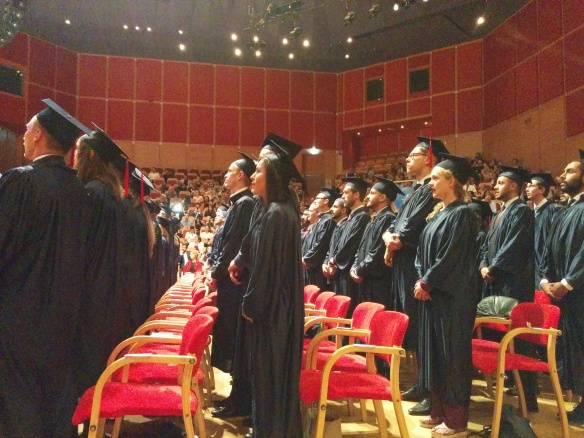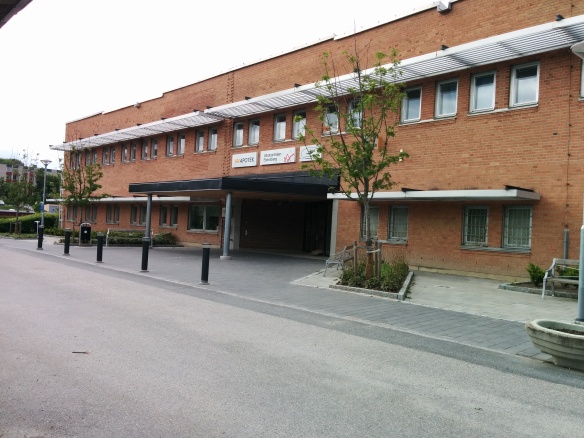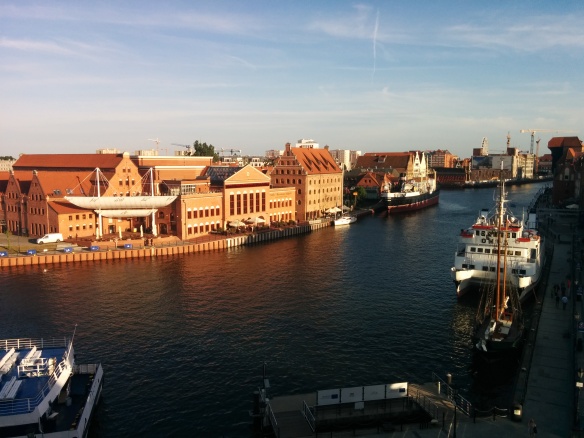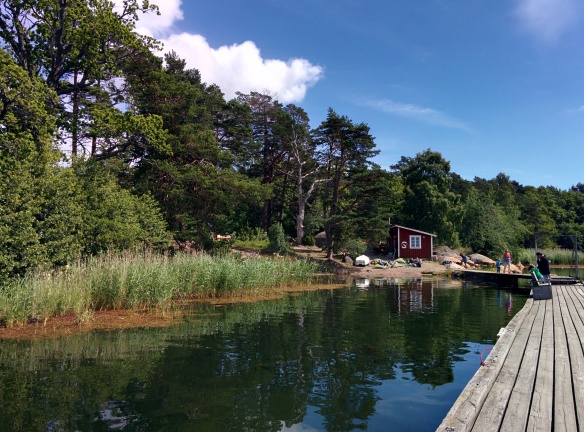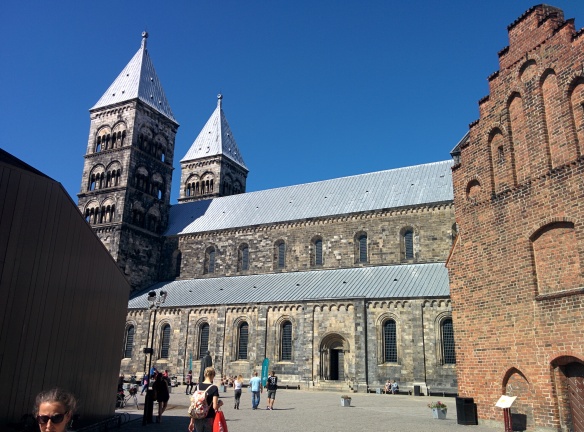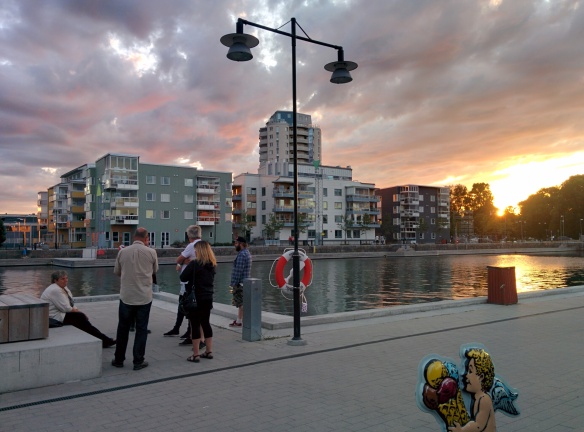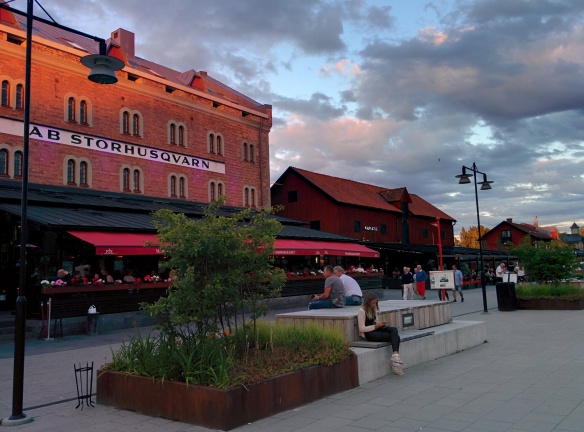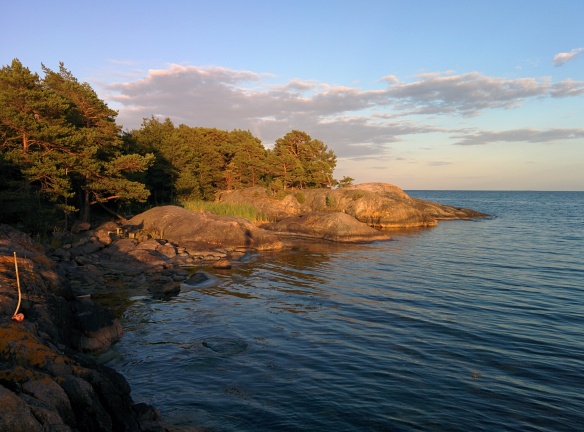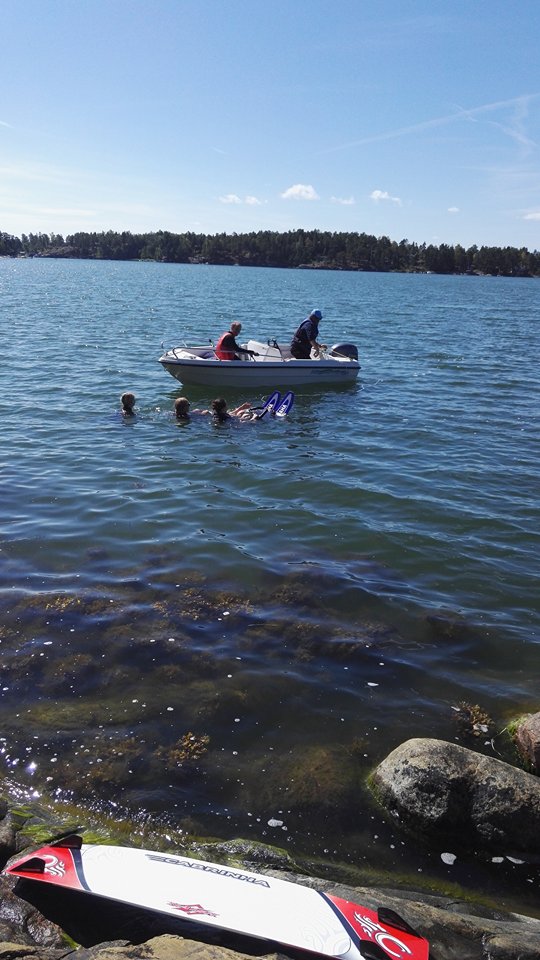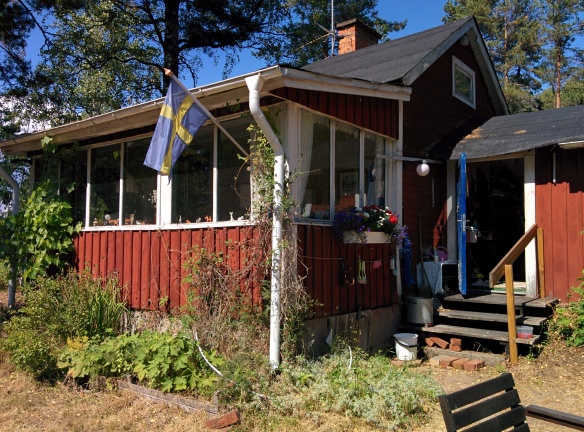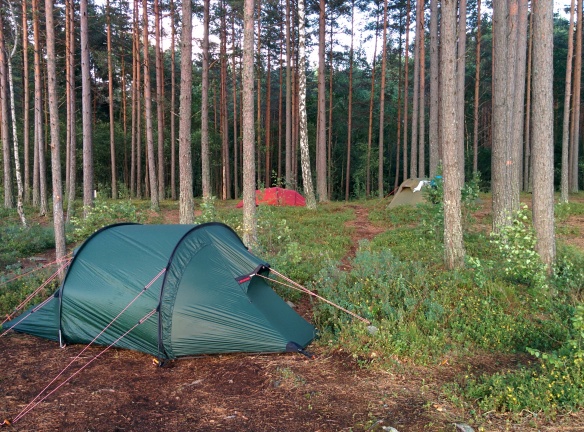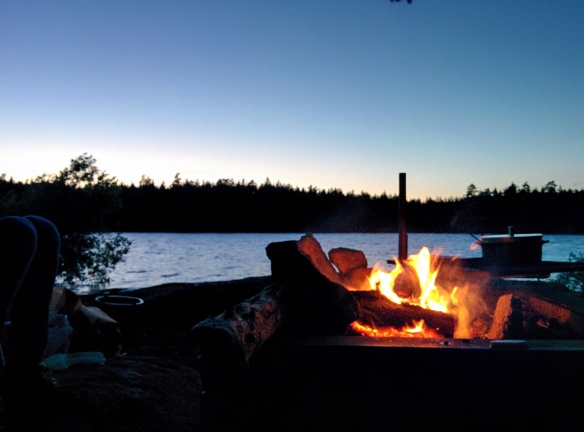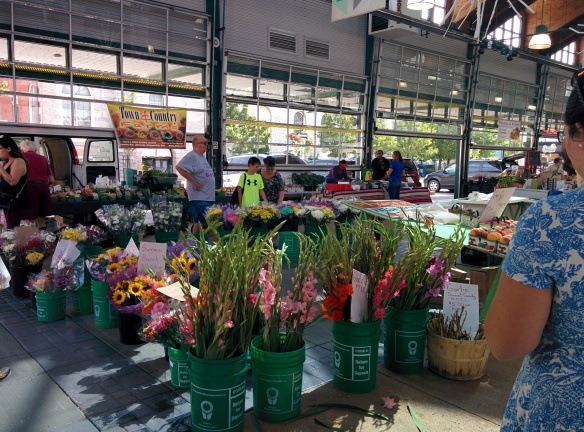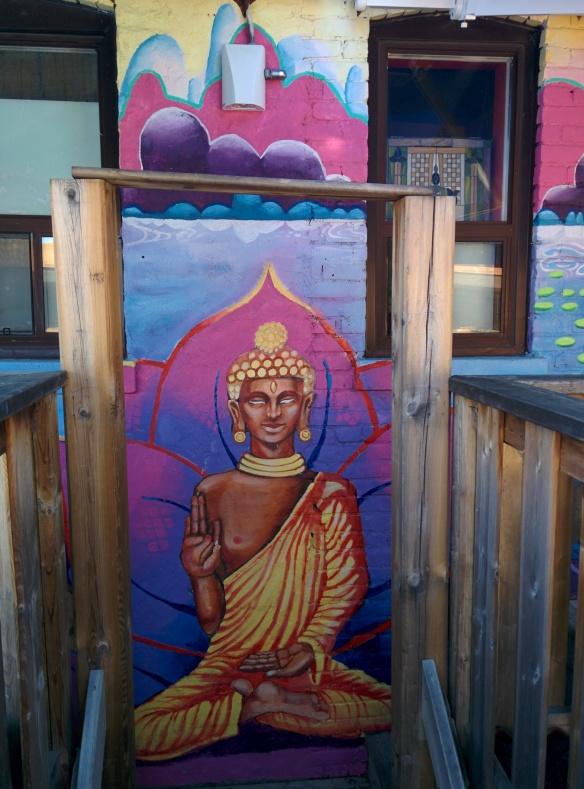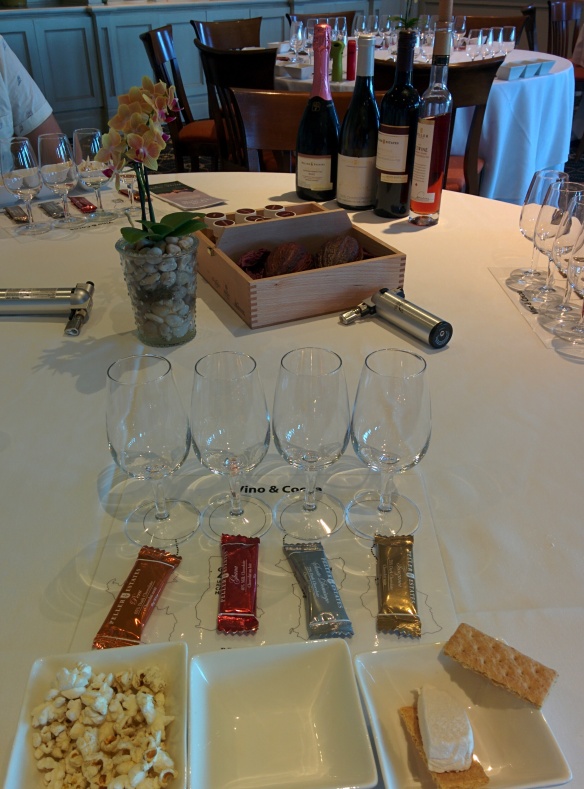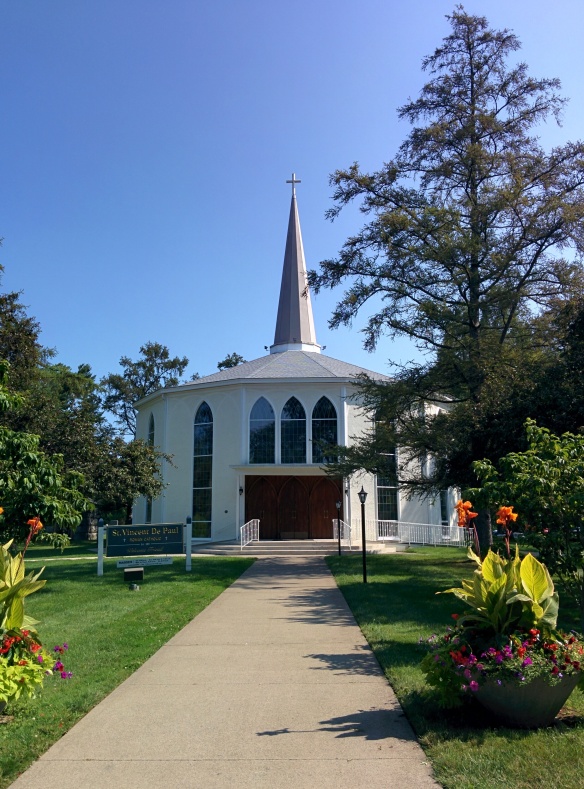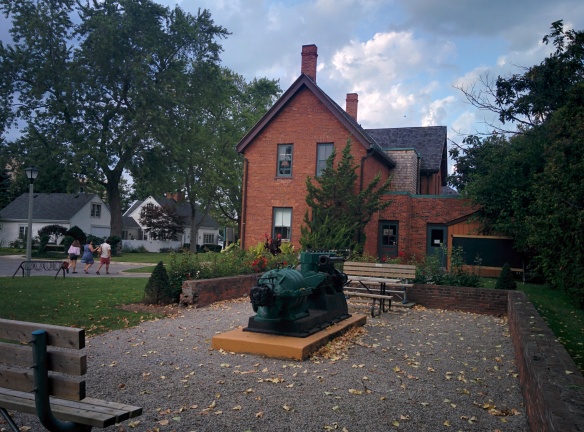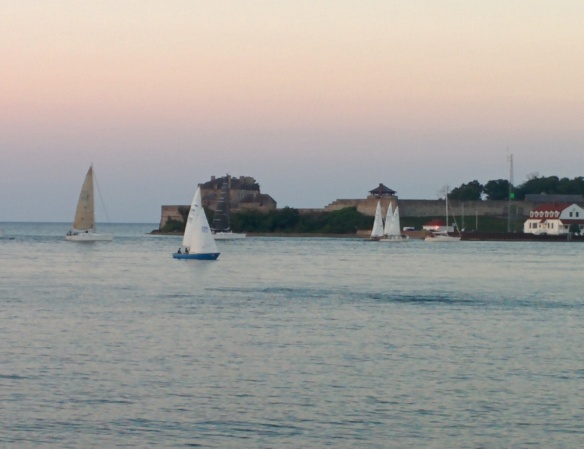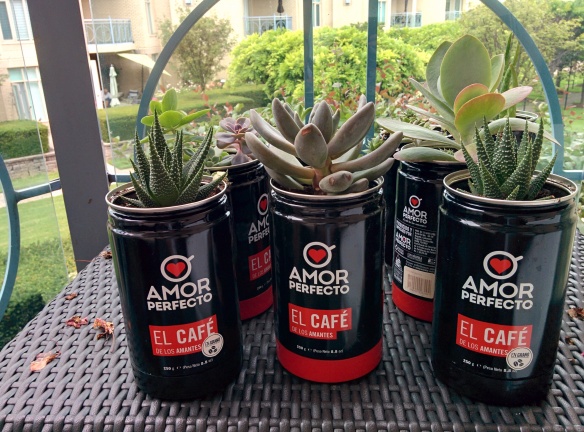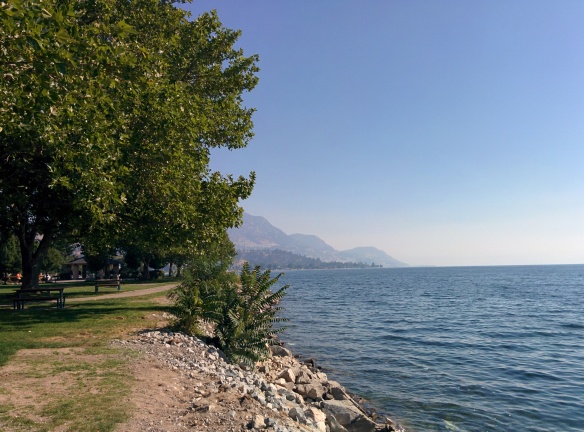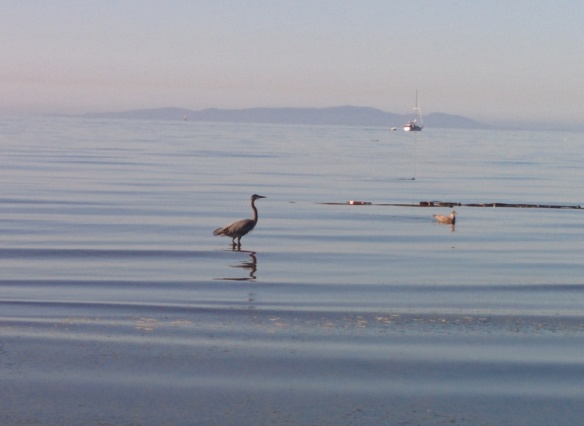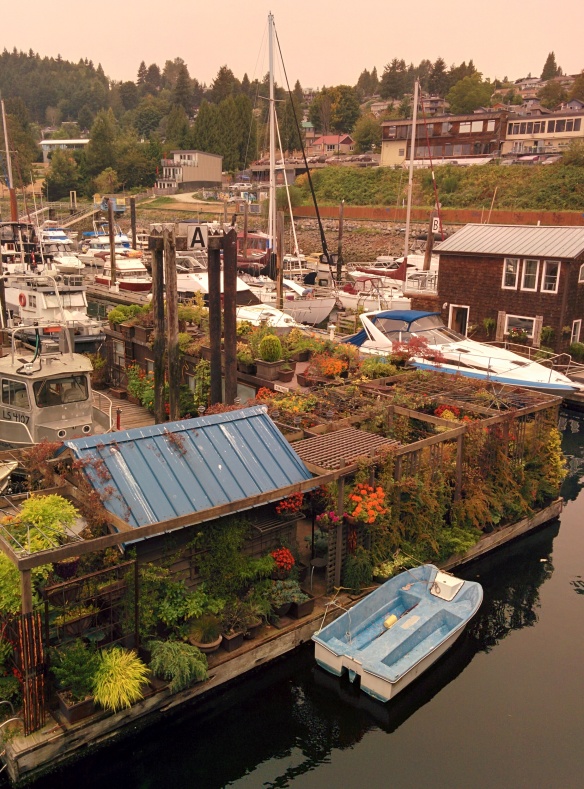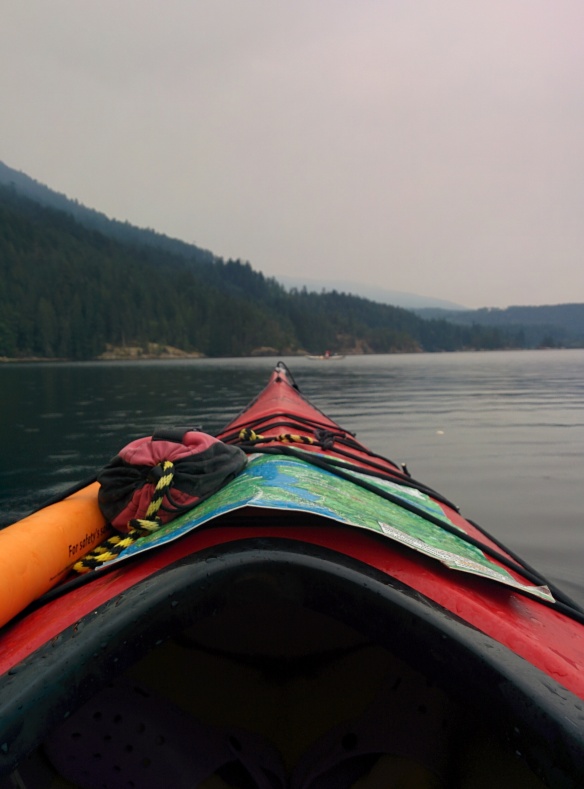Countdown: 72 days until graduation!
Life as a 6th year medical student looks like this for me right now: going to clinical exercises at the hospital every day; negotiating the class schedule to get more time to study at home; preparing for an exam; feeling like my brain is made of mashed potatoes after a long study day; taking an exam; feeling like my brain is made of mashed potatoes after an exam; sprawling on my bed for a day after my exam; making a study plan for my next exam; beginning to study for next exam.
I’m grateful to have a few weeks between most of my finals. This helps with the monster task of reviewing a few years’ worth of material. On the other hand, it means I’m running an exam marathon that is several months long. As a result, I’ve gone into self-preservation mode!
In this final year of study, many of our courses require us to pass not only a written theoretical exam, but also a practical exam (taking a patient history and doing a physical examination) and an oral exam (meeting a professor and answering questions verbally). Most of my exams throughout my academic career have been theoretical exams, especially with multiple choice questions. Preparing for an oral exam requires a bit of a different approach, from my experience.
I thought I would share a few of my strategies for preparing for an oral exam. As always, I share these things with the disclaimer that everyone learns differently and my methods are by no means guaranteed to be foolproof. Perhaps someone may draw some inspiration from my methods, or at the very least one may get a glimpse of my life right now.
Without further ado, here is how I prepare for an oral exam:
- I find out what I’m getting myself into.
The unofficial GUMed (Medical University of Gdansk) student information network is tremendous. There are comment threads and Facebook groups where I can find students and alumni who have had the same examiner that I’ve been assigned. It is invaluable to hear about their experiences with that professor. You can never know for sure what an examiner will ask you during your test, but you can get an idea of what their expectations may be like. - I make a plan of action!
I do love a plan. Before preparing for any big exam, I will actually spend my first day of “studying” simply formulating my plan! It’s an investment of time that helps me be more effective in the long run. First, I make a list of my available resources (textbooks, seminar slides, etc.). Then, I map out all the things I would ideally like to do if I had unlimited time to be perfectly prepared. I rank these tasks by priority, in order of most important (must be done to pass the course!) to least important (if I have done everything else, maybe I’ll squeeze it in). Then I look at my calendar and assign my tasks to specific weeks leading up to an exam. My last week before the exam is always a review week, because I know I have to see something AT LEAST twice for anything to stick! This is the part where I decide how much material I can realistically cover, and when I cut out the lowest priority items. My philosophy is that it’s better to study a smaller amount of the most important material and know it really well, than to try to learn every single little detail, confuse myself, and get all mixed up during the test. - I give myself homework assignments.
One of the things I can miss about high school was how easy it was to finish an assignment and just be done! There is no homework in our university– just knowledge, and a brain, and it’s up to the student to find out how to put them together! I choose the most important topics based on what I’ve heard from other students, what was emphasized during the course, what seems to be a major topic in the textbook, and what I feel like is essential knowledge for passing the course and functioning as a doctor. My homework is to write myself notes on each topic, containing everything I need to know about that disease– no more, no less. - ALWAYS KNOW HOW TO DIAGNOSE THE DISEASE!
If you don’t know how to make the diagnosis, you don’t know anything! The professor will ALWAYS ask you, “And how do you diagnose hypothyroidism/esophageal cancer/myocardial infarction/insert disease of choice?” I like to set myself up to be ready with an answer to that question. I also try to give myself a framework for how to talk about a disease, since we are often asked quite general questions which get narrowed down by follow-up questions as we go along. This framework consists of answering these points about each disease:– Definition (a one-liner of what the disease actually is)
– Risk factors (including who is typically affected)
– Symptoms and signs
– Diagnosis (labs, imaging, clinical criteria, exclusion, biopsy, etc.)
– Treatment
– Maybe complications (if they are important)
– Maybe prognosis (if it is relevant) - I give myself a dress rehearsal.
I’ve spent a lot of time rehearsing for stage performances of all sorts. Before the real thing, we always have a dress rehearsal to get a feel for what the real thing will be like. To draw a parallel to exam prep, there have been psychological studies showing that students perform better when their study environment is similar to their exam environment. I know that during the real oral exam, I’m not going to be sitting at my desk with my notes on my bookstand in front of me, like training wheels to help me if I get stuck. I’m going to be sitting up straight with a polite and professional smile on my face, with no visual cues and only the contents of my head to guide me. So during those last days before my oral exam, I pull my desk chair into the center of the room, sit up straight, put on my polite and professional smile, and imagine the voice of the professor saying, “Tell me about hypercalcemia.”Then I talk out loud to the wall all by myself in my little apartment, going through all the things I wrote in my homework, until I’ve said everything I can think of. I find this really helps me find my voice and be ready to articulate my knowledge in an intelligent and coherent way.
Warning! I like to do this later in the game when I feel like I’m starting to actually know something. It’s better for my confidence that way. I like to save this for the part where I’m almost ready for the exam and use it as proof to myself that hey, I have learned something after all!
- I take care of my mind and body.
My goal is always to be functioning at optimal levels of self-esteem and clarity of mind for an exam. Oral exams, in particular, demand a student to not only stay awake but also appear competent. Sleep, rest, feeding myself good food, meditating, exercising and all other forms of self-care are absolutely essential for me throughout the entire process, and especially leading up to exam day. - Exam Day: I put on my costume, do my hair and makeup, and it’s showtime!
As someone who rarely dresses up or wears any makeup in everyday life, I associate eye shadow and the smell of hairspray with dance competitions. I feel like I’m getting in character when I put on my formal dress and tights, tidy up my hair and put on makeup. I will be playing the part of “knowledgeable student who deserves to pass exam.” Not that I think makeup is going to make or break my final score, but it can’t hurt to use all the tools I have to make a good impression! - I find a hiding spot and do my power pose.
If you ever see me standing like a superhero somewhere in a corner, this is why:
Ted Talk by Amy Cuddy: Your body language shapes who you are - I bring a pen.
I’m usually asked to write my name and student ID on some sort of paper, and it feels nice to be prepared. I also like to have something to hold while I talk! - I’m prepared not to know all the answers.
First of all, I don’t know everything. Out of all there is to know in all of medicine, there are absolutely undoubtedly loads and loads of things I don’t know. And there is a chance I may be asked about some of these things during the exam. I also find that professors will usually keep on asking follow-up questions until I get stumped, or until they end up in an area where they don’t expect me to know, they just want to share this really interesting new fact with me. Indeed, sometimes they are looking for a particular key word or fact which I’ve missed, which is crucial to showing my understanding. A lot of the time, though, I think they just want to see the extent of my knowledge. From my personal experience, I find that the professor often doesn’t expect me to be able to answer every question perfectly for a passing grade. - I’m ready for anything.
Sometimes you will be asked about topics you didn’t study. Sometimes you will show up for your exam, all dressed up and ready to go, and your professor will see you and literally face-palm, because he forgot you were coming and now he is too busy to do your exam today. Sometimes you will be asked to go home and come back the next day. Sometimes your examiner will leave the room and return with a group of third year students, and the professor will just say, “Don’t worry! Don’t worry!” as he invites the students to sit down and watch you do your oral exam, because he is supposed to be teaching them and apparently this is their class today– being the audience.All of these things have happened to me. Or, if you’re unlucky like my friends, sometimes you will be kept waiting for five hours while the professor performs an unexpectedly long surgery, only to be asked to come back again the next day.
Anything can happen! I go in expecting the unexpected. This way, when things don’t go the way I imagined, I can just take it in stride. I smile, sit up straight, and do my best with each moment.
I could really keep going on and on about this topic; there’s so much more I could say. This is what my life looks like right now– lots of hard work and so much determination. It’s been so, so many years and I’m giving my education every last ounce of motivation that I can muster up! Let’s go! Let’s do this! And to all my fellow study bugs out there, I wish you good luck in your studying!

